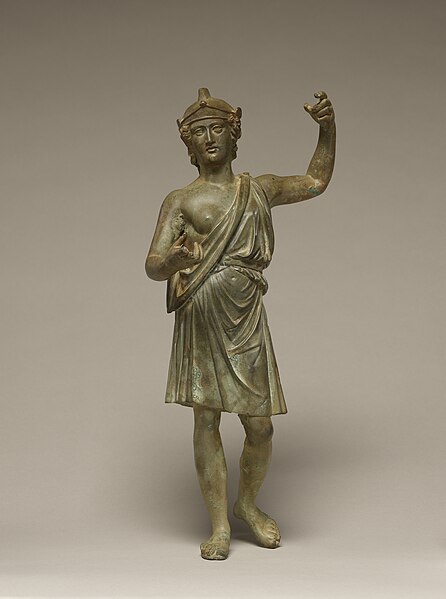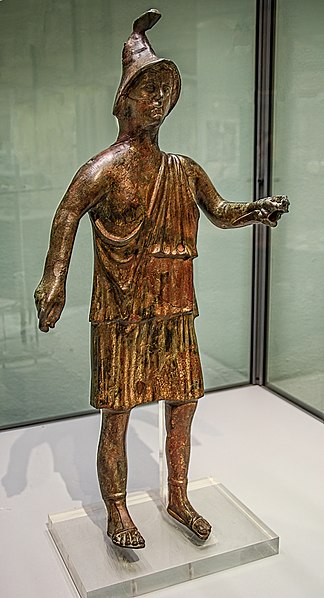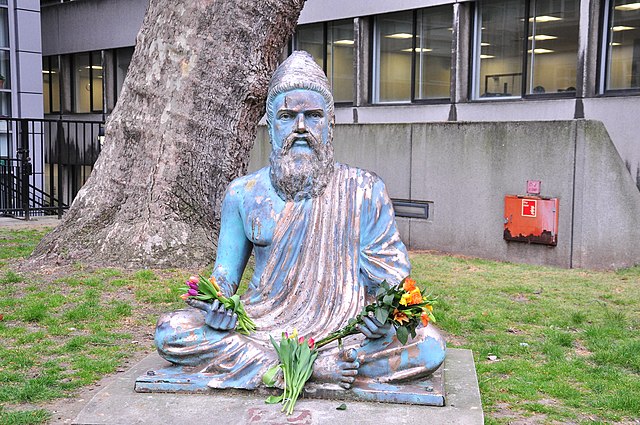Virtus was a specific virtue in ancient Rome that carried connotations of valor, masculinity, excellence, courage, character, and worth, perceived as masculine strengths. It was thus a frequently stated virtue of Roman emperors, and was personified as the deity Virtus.
Bronze statuette of Roma or Virtus, 50–75 CE (Getty Villa)
Sacrificial altar of the dea Virtus, 3rd century CE, Cologne, Germany
Virtus, Bronze, 1–3rd century CE, at the Archaeological Museum of Milan, Italy
A virtue is a trait of excellence, including traits that may be moral, social, or intellectual. The cultivation and refinement of virtue is held to be the "good of humanity" and thus is valued as an end purpose of life or a foundational principle of being. In human practical ethics, a virtue is a disposition to choose actions that succeed in showing high moral standards: doing what is right and avoiding what is wrong in a given field of endeavour, even when doing so may be unnecessary from a utilitarian perspective. When someone takes pleasure in doing what is right, even when it is difficult or initially unpleasant, they can establish virtue as a habit. Such a person is said to be virtuous through having cultivated such a disposition. The opposite of virtue is vice, and the vicious person takes pleasure in habitual wrong-doing to their detriment.
Cardinal and Theological Virtues by Raphael, 1511
Personification of virtue (Ἀρετή) in Celsus Library in Ephesos, Turkey
Valluvar (Statue at SOAS, University of London).
Virtues fighting vices, stained glass window (14th century) in the Niederhaslach Church







